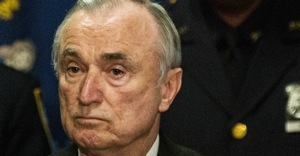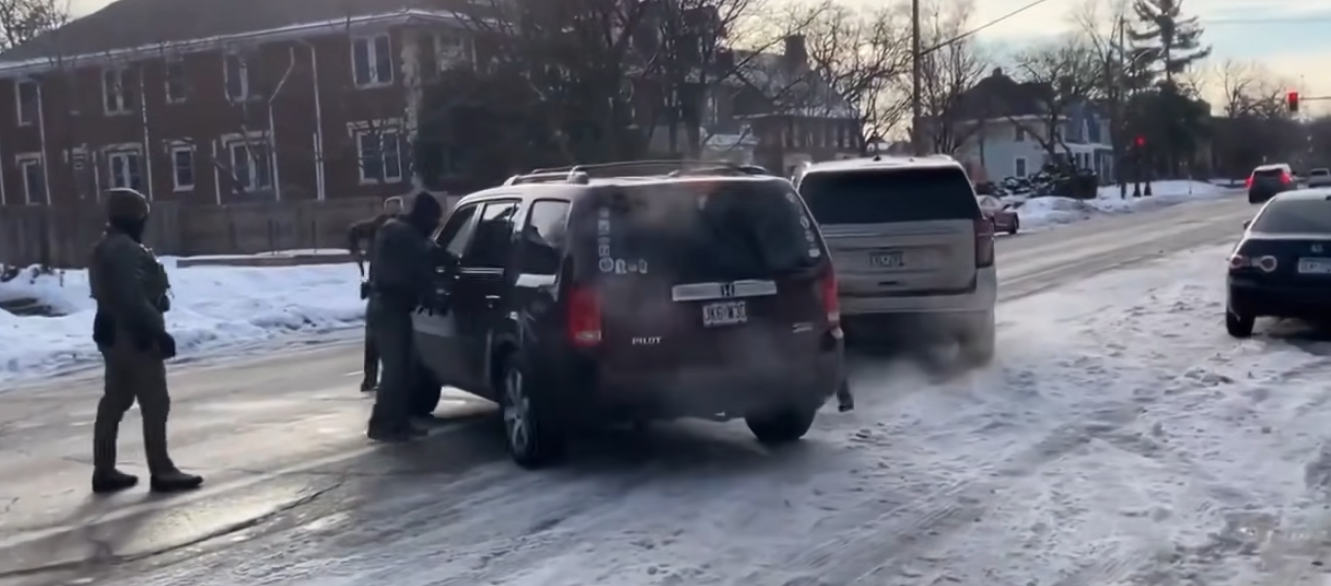Bratton Leaving–not a minute too soon
Tuesday’s announcement that New York Police Department Commissioner William Bratton will be resigning effective September, amid protests requesting his firing, and coming one day after he refused to apologize for the alleged assault by police on Bronx Assemblyman Michael Blake, is a welcome development.
Commissioner Bratton’s behavior as the top cop in the NYPD speaks volumes about what is wrong with policing in America. In announcing his police retirement, Commissioner Bratton said he will be taking a job in the private sector reportedly for a company named Teneo. NYPD Chief of Department James O’Neill will succeed Mr. Bratton as the new NYPD commissioner.
At City Hall, Commissioner Bratton said “There’s never a good time to leave, but there’s a right time. And this was the right time.” This is one time many Black and Latino New Yorkers will probably agree with Bratton. This man should never have been hired as police commissioner to begin with. Why did a so-called “progressive” politician hire this man in the first place?
“Jimmy is one of the best prepared incoming police commissioners this city has ever seen,” Mayor de Blasio said extolling the supposed virtues of Bratton. Sadly, de Blasio apparently failed to realize that Bratton wasn’t “prepared” to effect the kind of change that minority voters wanted. Did Mr. de Blasio forget he was largely elected by Black and Latino New Yorkers who were fed-up with the racial policing practices of the NYPD?
Instead of choosing an innovative trailblazing policing path, Mayor de Blasio rehired this previous commissioner under then Mayor Rudolph Giuliani, a nasty narcissistic man. Bratton was an early proponent of the “broken windows” policing approach which influenced the rise of the racially-driven “stop-and frisk” policy. Why did de Blasio make such a head-scratching decision by bring back Bratton?
Was Mayor de Blasio trying to allay the fears of White voters about “Black crime” as well as the economic concerns of those in the business community? Did the mayor really expect to fundamentally change racial policing with someone like Bratton at the helm? Why didn’t de Blasio realize his promise to Black and Latino New Yorkers to eradicate racism in the NYPD would be undermined by Bratton? Will Mayor de Blasio be a one-term mayor, in part, because he hired Bratton?
On Monday, before Bratton’s announced retirement we saw another example of how this commissioner undermines the mayor’s message about fostering better relations with police. Last Saturday, Bronx Assemblyman Michael Blake said he was grabbed and pinned to a gate when he tried to help defuse a confrontation between NYPD officers and three people at the Morris Houses, in the Claremont Village sections of the Bronx. According to Mr. Blake, he was just attempting to de-escalate the situation when he was attacked. Police accused him of putting his hands on a sergeant’s shoulder—something the assemblyman says he doesn’t remember.
Fortunately, for Assemblyman Blake he was eventually recognized by some officers. “The only reason this situation did not get worse is because I am a recognizable elected official,” Blake said. “And fortunately at that moment two other officers recognized who I was.” The assemblyman who represents the South Bronx also said “It’s difficult going back to the community and trying to (bring) peace and understanding between the community and the police when your community is seeing what’s happening even to elected officials.”
But the worst part wasn’t the treatment Blake received at the hands of the particular cop in question—it was the lack of respect Bratton showed him. Disrespect seems to be a top down situation at the NYPD.
Reportedly, Mayor de Blasio apologized to Assemblyman Blake. But Commissioner Bratton stated in a callously arrogant manner that “There will be no apology forthcoming from me, but we’ll see where the investigation goes.”
That Bratton said this even as he acknowledges the investigation is ongoing is very telling of the corrupt cop culture that he is an essential part of—where police aren’t held accountable for any offensive action involving the brutalization of Black people. Why bother to have an investigation if you’ve already decided no apology is necessary? At one point, this commissioner also said “We’re very proud of our use of force policy and procedures.” Talk about tone-deaf.
Did these callous and clueless comments fast-track the resignation of Bratton, especially as protesters were clamoring for his immediate firing? Surely, Mayor de Blasio must know that Bratton’s refusal to apologize to Assemblyman Blake is symptomatic of the larger problem of accountability between police and Black people. Bratton’s behavior makes a mockery of the supposed NYPD mantra of “courtesy, professionalism and respect.” Where is the “courtesy” and “respect” for the Black community if the police commissioner can’t even acknowledge wrongdoing done to a Black elected official?
These kinds of incidents by those at the top of the police chain of command illustrate the farcical nature of those who pretend the police are above reproach.
Monday’s statement by Bratton is a perfect example of the never-apologize-for-anything police philosophy—especially, if it involves racist police action against African-Americans. The idea that someone like Bratton was helping to change racist policing is beyond absurd. Bratton’s advocacy of “broken windows,” and its racist application in New York City, led directly to the horrors of “stop-and-frisk—which is why Eric Garner was killed by NYPD officer Daniel Pantaleo, who remains on the force.








